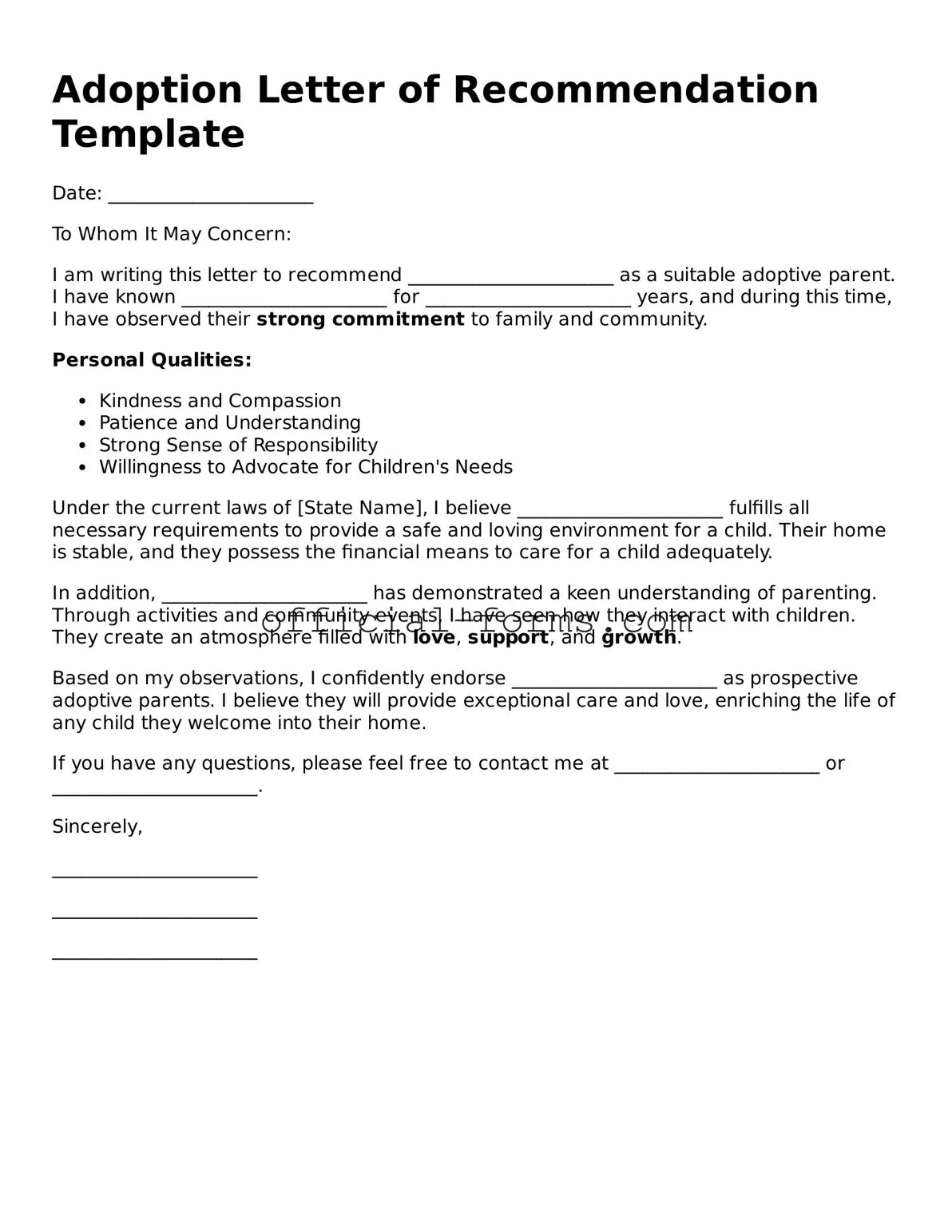Filling out an Adoption Letter of Recommendation form can be a meaningful task, but it is also one that requires careful attention to detail. Many people make common mistakes that can affect the overall quality of the recommendation. Understanding these pitfalls can help ensure that the letter serves its intended purpose effectively.
One frequent mistake is providing vague or generic statements. When recommenders write about the prospective adoptive parents, they should offer specific examples of their character and parenting abilities. Instead of saying, “They are good people,” it’s more impactful to describe a particular instance where the parents demonstrated kindness or responsibility. Specific anecdotes make the recommendation more credible and relatable.
Another common error is overlooking the importance of tone. The letter should convey warmth and support while maintaining professionalism. A recommendation that feels too formal or detached may not resonate with those reviewing it. Balancing a personal touch with appropriate language is key to creating an engaging letter.
Additionally, some people forget to address the letter to the appropriate party. Including the name of the agency or individual responsible for the adoption process is essential. This small detail shows that the recommender is attentive and serious about the task. Failing to do so can make the letter feel less personalized and more like a formality.
Another mistake is neglecting to proofread. Spelling and grammatical errors can undermine the credibility of the recommendation. A letter filled with mistakes may give the impression that the recommender did not take the process seriously. Taking the time to review the letter ensures clarity and professionalism.
Some recommenders also fail to highlight the strengths of the prospective parents. While it’s important to be honest, focusing too much on weaknesses can create an unbalanced view. Instead, the letter should emphasize the positive attributes that make the individuals suitable for adoption. This approach fosters a more favorable impression.
Moreover, not including contact information can be a significant oversight. If the agency or individuals reviewing the recommendation have questions or need further clarification, they should be able to reach the recommender easily. Including a phone number or email address is a simple yet crucial detail that facilitates communication.
Lastly, some people may rush through the process without giving it the thought it deserves. Writing a recommendation letter is not just a formality; it’s a chance to advocate for a family. Taking the time to reflect on the parents’ qualities and the impact they will have on a child can lead to a more heartfelt and persuasive letter. A thoughtful recommendation can truly make a difference in the adoption process.

